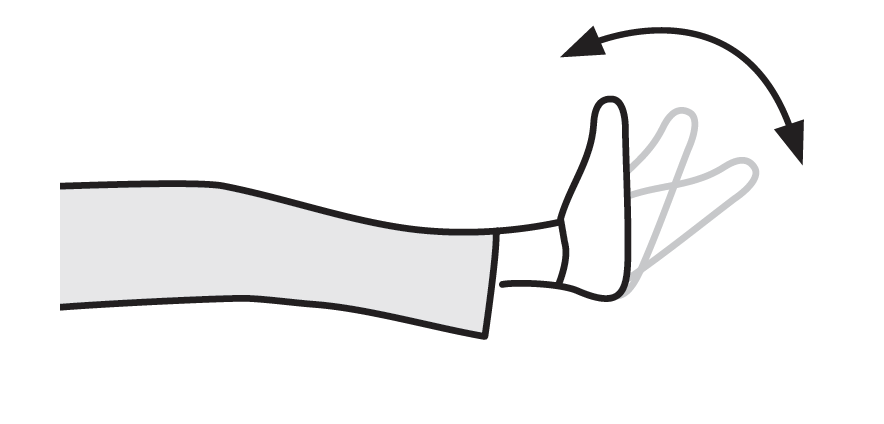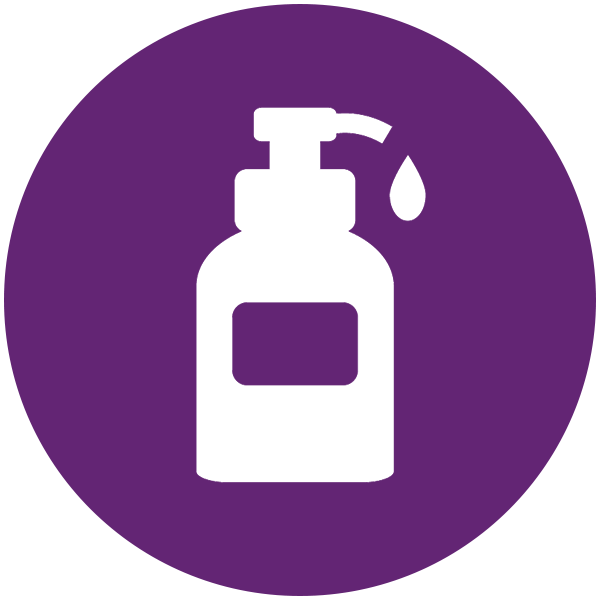In-hospital care after TAVI
How will I feel after my procedure?
After the surgery is done, you will wake up in the Cardiac Intensive Care Unit (CICU) or Short Stay Unit (SSU).
- You may feel tired from the medications you were given.
- You may have some bruising and tenderness in the area of the procedure.
- Medications may cause temporary delirium or confusion.
Inpatient progress tracker
Your health-care team will help you get moving throughout your stay in the CVICU and inpatient unit. You can our printable checklist to track your progress. The progress tracker follows our expected pathway to recovery, but recovery is different for each person. Please do not be discouraged if your progress isn’t exactly as shown.
Download the inpatient progress tracker
Getting moving
While you are in the hospital, you should increase your activity gradually. At the beginning, you may be on bed rest. As soon as you are able, you will start with easy activities such as sitting in a chair and walking in your room. Early activity is important because you lose muscle strength very quickly when you stay in bed.
Each person is different, so you need to listen to your body and progress at your own pace. If you feel tired during an activity, stop and rest.
Don't fall, call:
Please call for assistance when you need help getting up. Use non-slip footwear and any aids such as glasses, hearing aids and a walker to help prevent you from falling.
Ankle pumps
Pumping your ankles can help circulation. Pull your toes toward you and then push down like on a gas pedal. Repeat 10 times for every hour you are awake.
| Repititions | Frequency |
|---|---|
| 10 | Hourly |

Walking
As soon as you are able, you will be encouraged to start walking in your room, and then short walks in the hallway. Depending on your condition, walks should last up to five minutes at a comfortable pace, and should be completed 3 times each day.
| Repititions | Frequency |
|---|---|
| 3 | Daily |
While in hospital
In the days after your procedure, it is normal to experience some discomfort. This is temporary. During your inpatient stay at Sunnybrook, your health-care team will work with you to get you the care you need.
Swelling
Your legs may swell after a heart procedure. Here are ways you can help decrease swelling and improve circulation:
- Do ankle pumping, lower leg exercises, and walk frequently. Avoid standing or sitting for long periods of time.
- When resting in bed, use pillows to raise your legs higher than your heart.
- You may be instructed to wear tensor bandages.
- DO NOT cross your legs – this limits blood flow.
Swelling should decrease within a few days or weeks. If you notice persistent swelling in both ankles, let your doctor know.
Emotional changes
Some people may become sad, depressed or more emotional after a major health incident. It is often related to medications, loss of sleep, and stress. Your loved ones may also experience several emotions, including helplessness, fear and over protectiveness. These feelings may come and go over a period of time and usually pass in 6 to 12 weeks. If these feelings continue for several months, please speak with your family doctor.
Delirium
After TAVI, it is possible for you to experience temporary changes to your thinking and behaviour. You may become disoriented, forgetful or have difficulty thinking clearly. Your health-care team will ask you questions to assess your level of delirium and determine the best ways to help prevent or manage your condition.
Discomfort or pain
Each patient experiences pain and discomfort in a different way. After a TAVI, you may feel discomfort around the puncture site for a few days. If the medication is not providing relief, or you are having angina or other chest pain, speak with a member of your health-care team.
If the medication is not providing relief, or you are having angina or other chest pain, speak with a member of your health-care team.
Constipation
Constipation is common as a result of your pain medication, reduced activity levels or iron supplements. While in hospital, you will be given a stool softener to avoid straining your body. Make sure you eat foods that are high in fibre (fruit, vegetables, whole grain breads and cereals), and drinking enough fluids each day. Do not strain. If constipation is a problem, talk to a pharmacist or your doctor.
Sleeping
It is important to your recovery to rest and sleep. After a procedure, it is common to have temporary changes of sleep habits. You may have difficulty sleeping because of pain or anxiety. Consult your doctor if you have trouble sleeping.
Medication
Changes may be made to your medications after your hospital stay. New medications may be added for long-term heart protection, and you may be prescribed some temporary medications to help with pain. Some of your previous medication such as blood pressure medications, diabetes medications, diuretics (water pills) or blood thinners may be adjusted or discontinued.
A new prescription will be given to you on the day that you are discharged – this prescription will be a complete list of all the medications you are to take when you go home. A member of your health-care team will review your medications with you before you go home. Your family doctor or cardiologist will review these medications on your follow-up appointments and provide refills as needed.
Fill your discharge prescription on the day you go home to avoid missing any medications. You may fill your prescription at your local community pharmacy. If you have any questions about your medications, contact your doctor, nurse practitioner or pharmacist.
Antibiotics before dental appointments and invasive procedures
Now that you have a new aortic heart valve, for the rest of your life, you need to take antibiotics one hour before a dental appointment for teeth cleaning or procedures. You also need antibiotics one hour before invasive medical procedures such as colonoscopy, cystoscopy, and endoscopy. Your dentist, family doctor or specialist doing the procedure will give you a prescription.
Infection control
Please clean your hands each time you enter and leave your room and unit using the hand sanitizer stations throughout the hospital. Friends and family should not visit you if they are sick.

Preparing to go home
Your health-care team has evaluated your progress since your procedure and has decided that you are ready to leave the hospital. By the time you are discharged you should be able to take frequent walks around the inpatient unit on your own. The recovery period varies from person to person. Do everything in moderation.
Your discharge checklist
- Arrange to be picked up on the day of discharge.
- Speak to your physiotherapist or member of your health-care team about follow-up exercises
- Review the discharge paperwork with your nurse, including follow-up appointments and letters for your family doctor.
- Review your discharge prescriptions with your doctor, nurse or pharmacist.
- Arrange for someone to be home with you or nearby for the first week to help you, if you haven’t done so already. Remember you will not be able to lift more than 2.3 kilograms (5 pounds).
- Bring a physical version of this booklet home with you. It contains information about your home recovery program.
You will have a follow-up appointment in the TAVI Clinic 4 to 6 weeks after your procedure.






